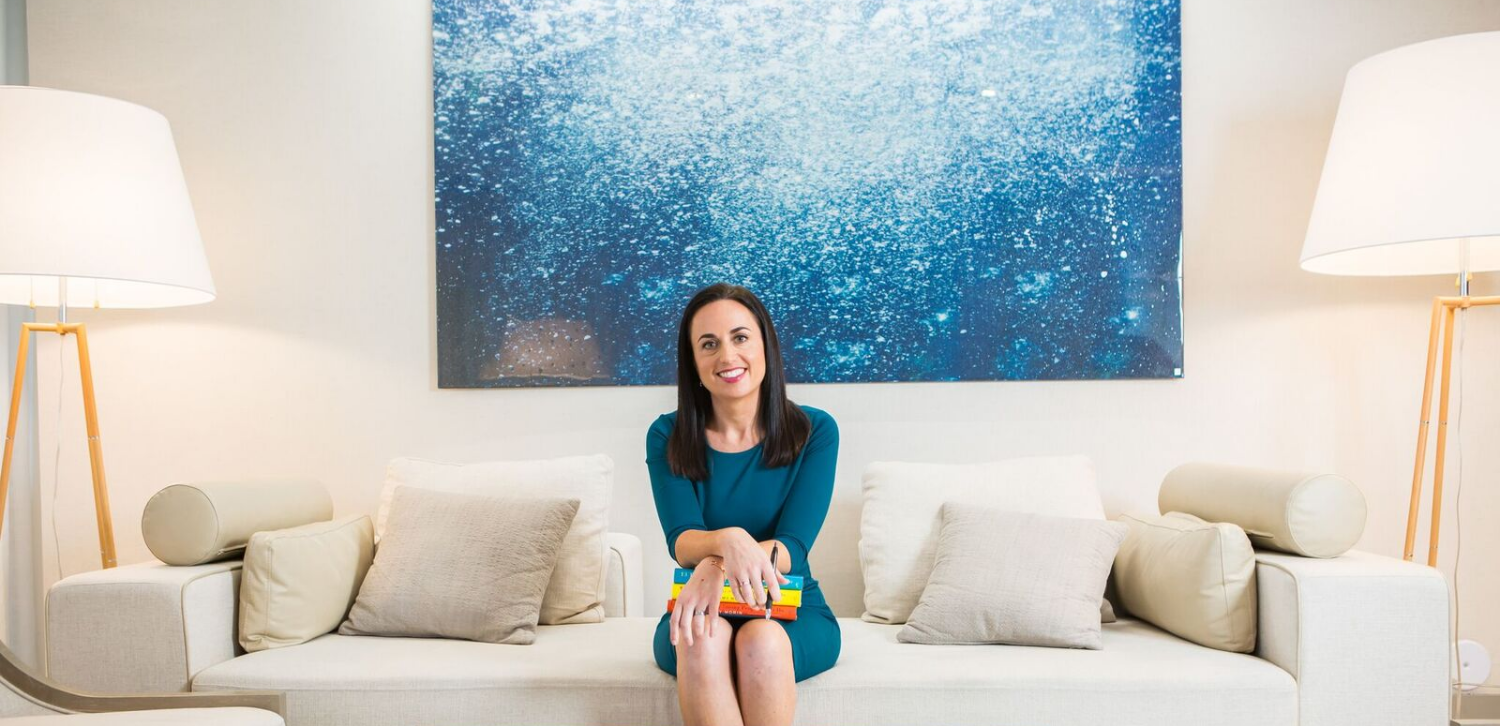Yesterday, I had the pleasure of speaking with best-selling author and psychotherapist Amy Morin. Amy is an expert on mental strength, and let’s face it, we need that more than ever right now. Specifically, I reached out to her to guide the conversation about what parents can do to thoughtfully confront our new collective reality. In her books like Thirteen Things Mentally Strong Parents Don’t Do, Amy encourages us to focus on what we can control, rather than what we can’t. And so, these are the takeaways from our conversation, and a road map for parents navigating unchartered territories.
Talk to your kids. Shielding your school-going children doesn’t work; it’s in the news, friends are talking about it, social media posts address it, and so on. Of course, your conversations should include age-appropriate information. A 6-year-old doesn’t need to know or have access to the same information that a 16-year-old does, so vary your dialogue accordingly. As parents, deliver united messaging, even if you as partners don’t completely agree. So, before you talk to your children, talk with each other and get clear about what you are and aren’t going to say. This is particularly important with the topic of social distancing.
Ask your children what they are hearing. Clarify what they know (or think you know). Through this, casually identify rumors or false information. If you identify gaps in their knowledge, fill those gaps with the correct facts (again, think age-appropriate). Try to avoid speaking about how bad it is, and mirroring the doom and gloom already found in the news. Rather, let children know that school closures and the cancellation of typical events are strategies used to stay safe. Use your messaging to reinforce that as a family, you are being proactive. By focusing on these actions with a positive tone, your children are more likely to feel empowered, accept the highly limited scheduling, and less likely to experience elevated anxiety.
Our current pandemic presents a unique opportunity for families to reset. Whereas a typical family is traditionally running from activity to activity with little time to rest and relax, we now are faced with the opposite scenario. As a family unit, there are other ways to calm tensions, process idle time, and increase mental fortitude. Amy encourages families to get back to basics and have fun. Amy suggests old-school activities like playing board games, family movie nights, cooking meals together, and art projects, to name a few. And where you can, focus on providing children with the opportunity to exert choice. For example, allowing the kids to pick the menu for a specific meal, and including them as the lead chef in that meal preparation.
Amy also suggests that instead of choosing to focus on what you can’t do, pivot to focus on what you can do. This unexpected time-gift can be used productively. It allows families to tackle tasks that have been exiled by a normally packed schedule. Maybe this means cleaning closets, finding items to donate, rearranging bedrooms, and generally getting organized. In many ways, this time is precious, for once the pandemic subsides, we will slingshot right back to the family-schedule-overdrive reality that we’re used to.

In general, and more specifically with teenagers and parents, it’s imperative to limit media consumption. Teenagers and parents live busy lives, and the normal touchstones (work, school, sports, movies, concerts, the mall, church, etc.) have almost evaporated entirely.
Importantly, Amy cautions us from using our phones as a pacifier. Exceedingly high levels of smartphone consumption are unhealthy, and absorbing too much information can drastically increase unease and anxiety. Amy suggests only checking the news three times per day, using the breakfast, lunch and dinner algorithm. While it’s absolutely necessary to keep informed, it’s equally critical to acknowledge that bad news, especially in large doses, takes a significant time for the mind to recover from. Certainly limiting media intake is tough to do. A good place to start is having an open conversation about media consumption. What are some alternatives for scrolling the news and social media sites? What are some good sites? Where can you redirect to more healthy sites? Inherently social media will, more than ever, fill the void of face-to-face social connectivity. But, instead of simply looking at posts, shift to video chatting or passion-aligned social media forums to keep the intake more positively and productively aligned.
Lastly, it’s crucial to understand what self-care systems you have in your home during this time. Sleep schedules, meal times, and maintaining a semblance of routine will provide long-term benefits for the family system even if they feel burdensome to deliver. Reading, movement, exercise, and meditation are all methods Amy asserts as worthy of consideration, regardless of age or stage. Sitting on the couch, doing chores, and heavy screen time are undoubtedly expected, but should not serve as the foundation for your in-home routine.
To learn more about Amy Morin, visit her website: www.amymorinlcsw.com


